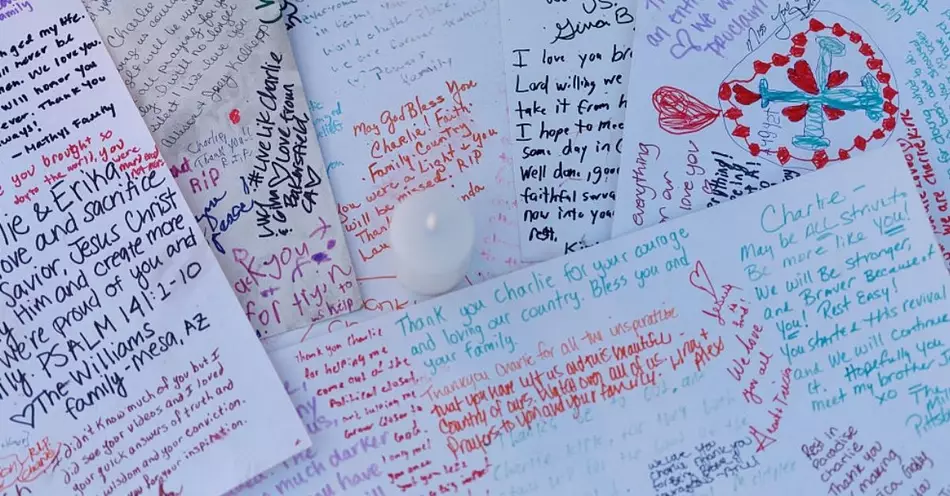

Check out the featured post and read more here: https://www.christianity.com/wiki/current-events/is-it-possible-to-grieve-alongside-people-weve-never-met.html
Social media has connected us more than ever before, and sometimes, we feel
very connected to people we have never met in real life. As brothers and sisters in Christ, this is amplified—we truly do share the same Spirit. Here’s why coming alongside each other in private prayer is more powerful than anything we could possibly post.
In 2025, we’re hit with a double-sided truth: Social media connects us to people across screens and oceans. From authors, influencers, and athletes, to Christians across the globe. Especially when these connections include sensitive emotions like grief, our bond becomes inseparable. We mourn celebrities, our hearts break over community tragedies, counties away, and we worry about strangers whose stories have touched us. As Jesus’ Disciples, however, this bond goes deeper than AI, socials, or algorithms. 1 Corinthians 12:13 tells us that we share the same Spirit. If we believe that to be true, it leads me to one bold and powerful question:
How can we bear witness to the power of prayer and Christian connectivity in times of grief?
Why We Grieve People We’ve Never Met
While I don’t currently have a degree in psychology or counseling, I love learning about the human mind. Few things fascinate me more than understanding why we do what we do. At the top of that list is this question: Why do we grieve people we’ve never met?
First, as human beings, we have empathy. Empathy is the ability to share and understand the feelings of another. It’s not to be confused with sympathy— feeling sorrow or compassion for someone else’s misfortune. Empathy and sympathy alike, however, come from the Lord. God created us to feel with others.
2 Corinthians 1:3-8 explains it best:
“Praise be to the God and Father of our Lord Jesus Christ, the Father of compassion and the God of all comfort, who comforts us in all our troubles, so that we can comfort those in any trouble with the comfort we ourselves receive from God. For just as we share abundantly in the sufferings of Christ, so also our comfort abounds through Christ. If we are distressed, it is for your comfort and salvation; if we are comforted, it is for your comfort, which produces in you patient endurance of the same sufferings we suffer. And our hope for you is firm, because we know that just as you share in our sufferings, so also you share in our comfort” (NIV).
Did you catch it? God is the Father of all comfort and compassion. While experiencing hardships and suffering isn’t pleasant, we can rest assured that He’s a loving Father, able to comfort us in our sorrows. Why? One, because He loves us, but two, so that we can comfort those in any trouble with the comfort we ourselves receive from God.
Second, our call as Christians is to walk through life with those around us. We rejoice with those who rejoice, we laugh with those who laugh, and we mourn with those who mourn (Romans 12:15). We learn to validate their feelings and then help them move beyond them. Social media is decently good at this because news brings us into others’ lives. We see stories that elicit a real emotional connection, and we deeply care for those within screens. And yet, this spiritual kinship goes deeper.
1 Corinthians 12:26 reminds us that we are part of one body. And if one part suffers, every part suffers with it. In the early church, for example, Paul was imprisoned and isolated. Even though many who supported him never saw him, they prayed without ceasing. We can care for those we’ve never met in person or seen face-to-face. That calling is no less important than our daily in-person interactions.
The Power (and Limits) of Social Media Grief
Although technology has its benefits, it also has its downfalls. Social media grief can be powerful, but it’s vastly limited. The comfort we can offer through a screen pales in comparison to a warm hug, loving embrace, or arm around the shoulder.
On the plus side, social media grief reveals solidarity. It raises great awareness of suffering, encourages compassion and empathy, and creates opportunities for encouragement. Consequently, these genuine actions and intentions can quickly morph into performative posting. We might be authentic, but we risk replacing true prayer with “thoughts and prayers” as a phrase instead of a practice. Sadly, a digital “connection” without spiritual depth can leave us still feeling empty.
Believers must stay on guard and constantly check in with their hearts. As Proverbs 4:23 warns: “Above all else, guard your heart, for everything you do flows from it” (NIV). Even the best of us can be deceived. Once pure motives and empathy can turn astray. This is why Jeremiah 17:9-10 offers this advice: “The heart is deceitful above all things and beyond cure. Who can understand it? “I the Lord search the heart and examine the mind, to reward each person according to their conduct, according to what their deeds deserve” (NIV).
One way to balance this power and the limits of social media when it comes to shared grief is by prioritizing authentic prayer. Prayer that matters so much more than statements like, “I’m praying for you.”